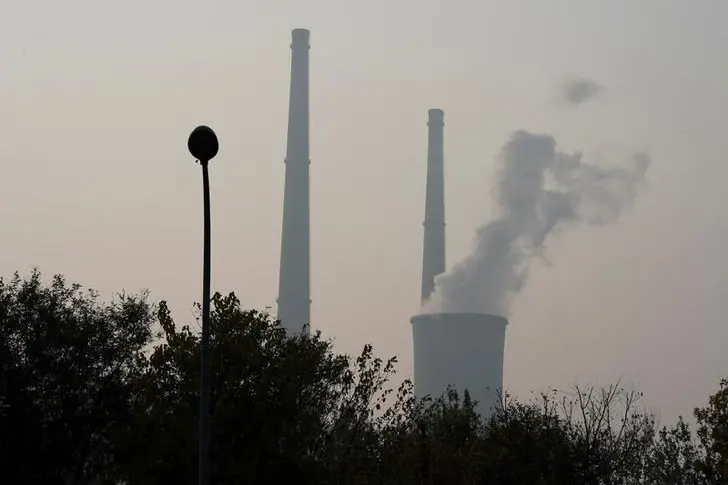PHOTO
BEIJING - China plans to launch a campaign to cut toxic emissions by oil refining and storage companies as well as chemicals, pharmaceutical and packaging firms during the summer as part of its efforts to reduce ground ozone pollution.
Beijing has identified ground ozone pollution, primarily from vehicle exhaust fumes and volatile organic compounds (VOCs) from industrial plants, as a major cause of poor air quality during the summer season in China.
From July 1 it will introduce tougher VOC emission standards and will tighten supervision of production, transport and storage at plants in 102 cities across the Beijing-Tianjin-Hebei, Yangtze River Delta, Fenwei Plain and eastern China regions, according to a draft plan issued by the Ministry of Ecology and Environment (MEE) on Monday.
The environment ministry will also ask oil refiners, chemicals companies and coal-to-liquids, pharmaceutical and pesticide firms to avoid arranging overhauls during the peak time of ground ozone pollution in order to reduce VOC emissions.
Maintenance plans at companies will need to be submitted to the MEE by the end of May.
A MEE official said on Friday that the ministry will send experts to carry out research on ozone pollution in Hebei, Shandong, Jiangsu, Anhui and Henan province in late May, and will launch inspections at industrial plants from June.
State-backed oil giants, including China National Petroleum Corp (CNPC), Sinopec, CNOOC and Sinochem, will be urged by the MEE to invest more money to improve their VOC emission levels.
The environment ministry will publish monthly ground ozone pollution levels for the 102 cities and will penalise local authorities that fail the pollution control targets, but did not give details.
The average concentration of ozone in China in 2019 reached 148 micrograms per cubic metres, up 6.5% from the previous year, according to MEE data.
(Reporting by Muyu Xu and David Stanway; Editing by Susan Fenton) ((muyu.xu@thomsonreuters.com; +86 10 56692117;))





















